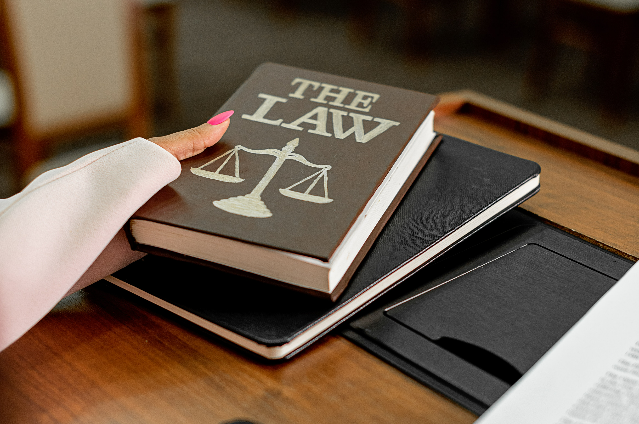
Fundamental rights are enshrined in Part III of the Indian Constitution, including the rights to equality, life and liberty. Merely laying down fundamental rights is not enough. It is also important to protect and enforce these fundamental rights. The Indian Constitution provides the right to go to the Supreme Court or High Court if your Fundamental Right has been violated. The Supreme Court or High Court can also issue writs to enforce your Fundamental Rights.
Social and Economic Justice is the key tenets of the Indian Constitution. This document guarantees fundamental rights that cannot be taken away from people, including the right to a fair trial and the right to receive compensation if those rights are violated.
A writ is a formal written order issued by a Court with the authority to issue such an order. Orders, warrants, directions, summonses, etc. are all essentially writs. It is an application containing details of a writ petition filed before the suitable Court requesting it to issue a specific writ. The judicial review of administrative actions is an important way to ensure that decisions made by government officials are legal, rational, proper, just, and reasonable. Protecting fundamental rights and ensuring natural justice are the most important aspects of this jurisdiction.
Origin of the writ
The origin of writs can be traced back to the English Judicial System, which developed into the common law courts. Orders passed by the King's Bench in England made way for the writs. It was considered a royal order presented in front of the king in council in the form of a petition. However, with different forms and names taken on over time, writs took on a variety of purposes. The writs were issued by the crown and initially only concerned the interests of the crown. However, over time, it became available for ordinary citizens to purchase. A prescribed fee was charged for it, and the filling of these writs was known as the purchase of a writ.
The power to issue writs in India traces back to the Regulating Act, of 1773, which established the Supreme Court in Calcutta. The charter also granted other High Courts the power to issue writs as a replacement for the Supreme Court's original civil jurisdiction. This power is limited to their original civil jurisdiction.
Constitutional Provision
Article 32 of the Indian Constitution provides for the enforcement of fundamental rights and for a judicial review of administrative actions. This constitutional remedy is available to any person who wants to bring his complaint or grievance against any administrative action before the court. The most important part of this process is ensuring that fundamental rights are protected and that natural justice is always upheld. The court's jurisdiction is exercised by the Supreme Court and the High Court only. This power is granted to the Supreme Court by Article 32, and to High Courts by Article 226.
Article 32 of the Constitution guarantees that all citizens have the right to move the Supreme Court in order to enforce their fundamental rights guaranteed by part III of the Constitution.
Article 32 grants the Supreme Court the power to issue orders or writs in the form of habeas corpus, certiorari, prohibition, mandamus, and quo-warranto in order to enforce fundamental rights.
Article 226 gives state high courts the power to issue directions, orders, or writs as needed to enforce fundamental rights and for any other purpose.
The Constitution provides judicial remedies to protect the rights of individuals. If no such remedies are available, individuals have no recourse to enforce their rights. Thus, wherever there is a right, there must be a means to protect it.
Doctor B.R. Ambedkar considered Article 32 to be one of the most important articles in the Indian Constitution, and he made it a priority to discuss and debate its implications.
Types of writs

1. Habeas corpus
The writ of habeas corpus is a legal document that allows a person to be freed from prison if they can show that they are being held against their will. This document is often used to free people who are being held in prison because they are suspected of a crime.
Habeas Corpus is a powerful tool for liberty, providing order to a detaining authority to produce an arrested person for examination. If the authority believes the person is being detained unlawfully, they may be ordered to release the person.
The general rule is that an application for habeas corpus can be made by anyone who is illegally detained. However, in certain cases, an application for habeas corpus can be made by someone on behalf of the detained person, which is known as a "Friend or Relatives" application. A writ of habeas corpus is a court order with the force of a lawsuit; it is addressed to the custodian (a prison official for example) and demands that a prisoner be taken before the court and it is the responsibility of the custodian to give proof of authority which allows the court to determine whether the custodian has lawful authority to detain the prisoner or not.
The writ of habeas corpus comes with certain limitations. It is a procedural remedy that guarantees against any detention that is forbidden by law, however, it does not necessarily protect other rights, such as the entitlement to a fair trial.
The writ of habeas corpus will be denied if the detention is done in bad faith or for ulterior motives. However, if the detention is justified, the High Court will not grant the writ.
2. Mandamus
In the coming years, Mandamus will continue to make a difference, helping to restore peace and justice to the world. In a time of great turmoil, a new hero is born. Unknown to most, a powerful force is working behind the scenes to help restore peace. This hero is known as Mandamus. Mandamus is a resourceful individual who uses his intelligence and cunning to solve problems. He is also a compassionate person who is not afraid to stand up for what he believes in. Throughout his life, Mandamus has faced many challenges. Yet, he has always risen to the occasion, using his skills and knowledge to help others.
Mandamus is a legal term that means "We command." Mandamus is an order from a higher court to a lower court or tribunal or public authority to carry out a duty that falls within its authority. It is issued to ensure the performance of public duties and to enforce private rights that have been withheld by the public authorities. Mandamus is a discretionary power of a court, and the primary purpose of this writ is to make government machinery work properly.
A court may issue a "mandamus" order to compel a tribunal to exercise its jurisdiction, which the tribunal has refused to do. The court may also issue a "mandamus" order where there is a specific legal right, without any specific remedy for enforcement of that right and where there is no reason to believe that the tribunal will not obey the order. The Supreme Court has held that the doctrine of legitimate expectation is akin to the principles of natural justice, reasonableness, and promissory estoppel.
A writ of mandamus is typically used when someone has failed to perform a mandatory duty, but the person must show that they have made a clear demand for enforcement and their demand was refused.
A writ of mandamus can only be issued to someone who has a right to compel the performance of a duty. The duty sought to be enforced must be a public duty and not a private duty. In cases where there is a statutory duty imposed upon the officer concerned, and there is a failure on the part of that officer to discharge the statutory obligation at that time only the writ of Mandamus is granted.
3. Certiorari
Certiorari is a judicial action used to have a lower court's decision reviewed by the Supreme Court. It can be used to quash an order that has already been passed by an inferior court or to bring a matter before the Supreme Court for proper consideration.
If a court believes that a lower court or tribunal has acted beyond its authority or made an error of law, it can ask the Supreme Court to review the case.
The principle behind the use of a writ of certiorari is that it can only be used to remove or adjudicate the validity of judicial acts. This includes the use of quasi-judicial functions by administrative bodies or authorities or people obliged to exercise such functions.
If the court has made an error in its jurisdiction, this means that the court does not have the authority to hear the case. If the court has not given the parties enough time to be heard or has violated principles of natural justice, this writ is supervisory and the High Court cannot review the lower court's findings. If the error is clear, then this writ can be used to correct the situation.
When a person with legal authority to make decisions affecting the rights of subjects acts outside of their authority, a writ of certiorari will be issued to try and get their decision overturned. This does not happen when just administrative decisions are made, only when the person with legal authority makes decisions affecting the rights of subjects.
4. Prohibition
The writ of prohibition is a court order that stops a lower court or tribunal from performing an act that it doesn't have the authority to do. It's issued by a higher court when it feels that a lower court or tribunal is trying to go beyond its legal bounds. After the writ is issued, the proceedings in the lower court stop.
A writ of prohibition is issued to prevent an inferior court from making decisions that go against the rules of natural justice or from exceeding its jurisdiction. This writ is issued by a superior court to prevent inferior courts from acting outside of their bounds.
5. Quo Warranto
People might want to know does the law provide a remedy for wrongs done? The answer, as you may know, is that the law provides a remedy known as "quo warranto." This is a legal term that refers to the right of a person to seek redress for a wrong done to them.
The writ of quo warranto is a legal document used to prevent someone from illegally taking office, or improperly using their authority.
The writ of quo warranto is a legal tool used by courts to confirm the right of citizens to hold public office. It is used to check the actions of the executive branch when making appointments against statutory provisions, and to protect those citizens who have their right to hold public office revoked.
The purpose of this law is to ensure that people who are not legally entitled to hold an office do not take advantage of that office. This law cannot be used to prevent someone from holding a private office.
If you think someone is illegally holding a public office, you can file a "writ of quo warranto" to try to take the office away from them. This process requires that the office in question is a public office and that the person holding the office doesn't have the legal authority to do so.
Conclusion
So, to conclude, the power to issue writs is one of the most important powers granted to the High Courts and the Supreme Court under Section 226 and Section 32 respectively. Writs protect the rights of citizens by providing a faster remedy, thereby upholding the principles of democracy by providing quick justice. The importance of writs cannot be underestimated, and the courts must use this power carefully as they have been given a wide ambit to exercise this power.
